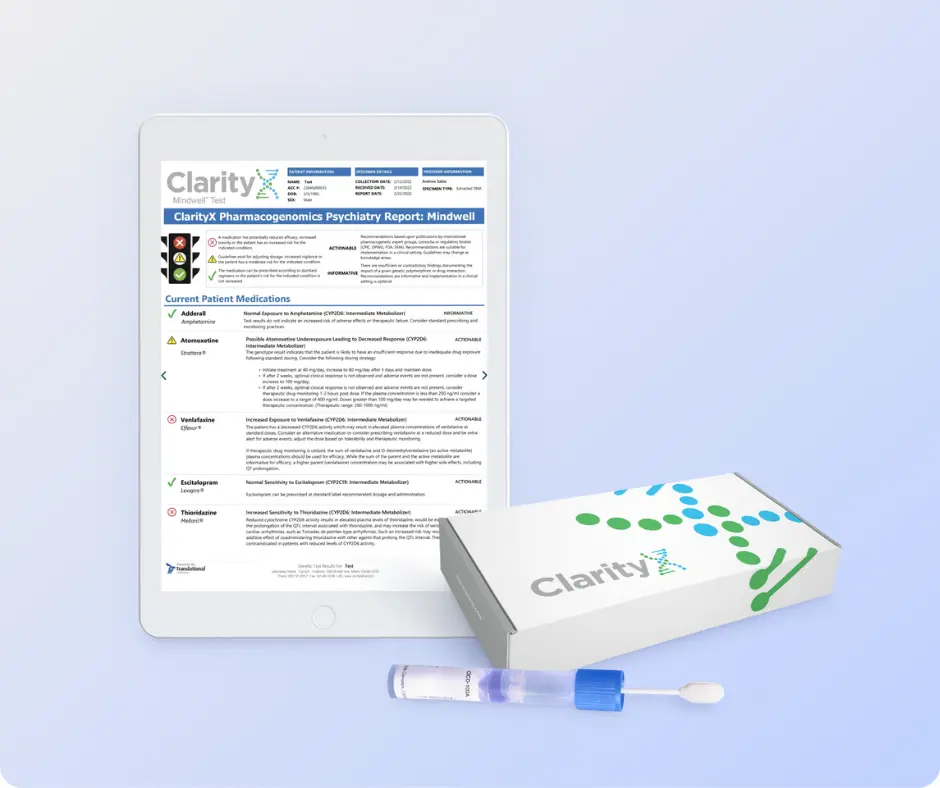In the midst of the COVID-19 global pandemic, it has been studied that the incidence of depression in the United States is 3 times higher compared to rates prior to the pandemic.1 It’s no secret that mental wellness and overall health are closely linked. If you’re struggling with a mental health condition, it will likely affect other aspects of your life including your physical health, career, and social relationships. Thus, if you suspect that you’re struggling with something like depression or anxiety, it’s important to talk to your doctor and get treatment. While treatments vary from person to person, they often consist of therapy and medication. In this article, we’ll review two drugs that are commonly prescribed for mental health conditions: Zoloft vs Wellbutrin.
Introduction
Sertraline (Zoloft) is an antidepressant in a class of medications called serotonin reuptake inhibitors (SSRIs). To put it simply SSRIs function to help with mental health conditions by increasing the amount of serotonin in the brain by 60 to 80%. Increasing serotonin in the brain helps to significantly improve and elevate mood. SSRIs are frequently used antidepressants due to their effectiveness, tolerability, and low likelihood of overdosing. SSRIs are commonly used to treat mental health conditions like major depressive disorder, generalized anxiety disorder, obsessive-compulsive disorder, and post-traumatic stress disorder.2
Bupropion (Wellbutrin) is different from all other marketed antidepressants. The way Wellbutrin functions in the body is not well understood, but it is primarily thought to work on affecting the reuptake of dopamine and norepinephrine otherwise known as norepinephrine/dopamine reuptake inhibitors (NDRIs). Ultimately, this increases the levels of norepinephrine and dopamine in the brain helping to boost mood, concentration, and happiness. In addition, Wellbutrin has a unique indication to treat people trying to stop smoking (smoking cessation).3
Zoloft vs Wellbutrin Label Indications and Off-Label Uses
Zoloft and Wellbutrin vary in how they work in the brain to help improve mental health symptoms and the indications they are labeled to treat. The following chart illustrates the label indications and off-label uses. 4 5
| Labeled Indications | Off-Label Uses | ||
| Sertraline (Zoloft) |
|
Binge eating disorder; Body dysmorphic disorder; Bulimia nervosa; Generalized anxiety disorder; Premature ejaculation | |
| Bupropion (Wellbutrin) | Major depressive disorder; Seasonal affective disorder, Smoking cessation | Attention-deficit/hyperactivity disorder; Bipolar depression; Selective serotonin reuptake inhibitor-induced sexual dysfunction, augmentation |
Zoloft vs Wellbutrin Formulations & Dosages
Before prescribing a medication, your healthcare provider will give you a specific dosage amount. This is usually determined based on the following factors: age, the condition being treated, and other medications used by the patient. Let's take a more in-depth look at the unique dosage requirements for both Zoloft and Wellbutrin.
Zoloft can be found in three forms: tablets, capsules, and oral solutions. The exact dose varies depending on the type of condition that's being treated - the chart below shows the recommended adult dosage amounts for multiple mental wellness conditions. 6
| General Starting Dose | Maximum Dosage | |
| Major depressive disorder | 25-50 mg/day | 200 mg |
| Obsessive-compulsive disorder (OCD) | 50 mg/day | 200 mg |
| Generalized anxiety disorders (GAD) | 25 mg/day | 200 mg |
| Premenstrual dysphoric syndrome | 50 mg/day (during menstrual cycle) | 200 mg |
Wellbutrin is available in three forms: immediate-release, sustained-release, and extended-release. The immediate-release formulations are the fastest-acting and last for an average of 8-12 hours in the body. The sustained-release and extended-release formulations last for longer time frames in the body (12-24 hours). The chart below showcases the different formulations, and the recommended adult dosage amounts for major depressive disorder (MDD). 7
| General Starting Dose | Maximum Dosage | ||
| Wellbutrin Immediate Release (IR) | 100 mg/8-12 hours |
|
|
| Wellbutrin Sustained Release (SR) | 150 mg/12 hours | 400mg/day | |
| Wellbutrin Extended Release (ER) | 150 mg/24 hours | 450 mg/day |
Zoloft vs Wellbutrin Side Effects
When you begin a new medication, there's always the risk of side effects. Here's a breakdown of the side effects commonly experienced when taking Zoloft and/or Wellbutrin.
| Zoloft | Wellbutrin | |
| Nausea/dizziness | Yes | Yes |
| Dry mouth | Yes | Yes |
| Sweating | Yes | Yes |
| Diarrhea/constipation | Yes | Yes |
| Vomiting | Yes | Yes |
| Drowsiness | Yes | Yes |
| Weight changes | Yes | No |
| Headaches | Yes | No |
| Weakness/lack of energy | Yes | No |
| Lower libido | No | Yes |
| Indigestion | No | Yes |
While anyone can experience unwanted side effects, certain individuals are at a higher risk. For instance, your risk increases if you are older, are on other medications, or have a slow metabolism rate. 8 9
Zoloft vs Wellbutrin Metabolism
Every patient has the potential to react differently to medications. Some may experience side effects, while others respond without any issues. Many times, drugs are directly impacted by enzymes (CYP450 enzymes) that are responsible for eliminating or activating medications in the body. An individual’s genetics can affect the CYP450 enzyme’s ability to metabolize drugs. Let’s take a look at some examples of how this can affect Zoloft and Wellbutrin in the body.
Sertraline (Zoloft) is primarily metabolized by CYP2C19 and CYP2D6. An individual’s genetics can affect how these enzymes metabolize medications. For example, in a person who genetically is found to have the poor metabolizing function of CYP2C19, this can significantly slow the breakdown of Zoloft in the body. This can lead to a buildup of the drug in the body and produce unwanted side effects or adverse events (hospitalizations). It is clinically recommended to either consider an alternative or reduce the starting dose of Zoloft by 50% with continued monitoring for side effects. 10
Bupropion (Wellbutrin) is unique in that it is not profoundly affected by CYP450 enzyme metabolism. However, it does inhibit the enzyme CYP2D6 and can prevent other medications from being eliminated or activated in the body. The classes of medications that Wellbutrin can have an impact on when given in combination with each other are the following: antidepressants, antipsychotics, beta-blockers, and Type 1C antiarrhythmics. 11
ClarityX Pharmacogenomic (PGx) Testing
Trying to decide between two different medications can be overwhelming. ClarityX can help people make well-informed choices about their medications through pharmacogenetic (PGx) testing. Put simply, pharmacogenomic (PGx) testing evaluates your genes for variations that may affect how you metabolize certain drugs. With this information, you’ll know whether you need to adjust your dosage or avoid a drug entirely. The Mindwell test can help provide information on treatments designed for mental health conditions, including antidepressants, antipsychotics, and anxiolytics.
The Mindwell test from ClarityX provides a seamless in-home testing experience. Simply visit the website clarityxdna.com, select the Mindwell test option from the drop-down menu, and complete the checkout process. Once the kit is received follow the package instructions, perform a simple cheek swab, then mail the sample back using the prepaid envelope. The sample is then sent to the lab for processing and the results are posted in the online patient portal for easy access by the patient or provider in 7-14 days on average.
One of the most important facts about pharmacogenetic (PGx) testing is the results can be reevaluated for future medication changes as this test does not have to be repeated for those specific genes tested. Another key function of the Mindwell test is 130 specific medications for depression, anxiety, and ADHD can be entered to be evaluated to see how an individual’s genetic makeup can affect those drugs. Pharmacogenetic (PGx) testing can provide a lifetime of knowledgeable decisions about medication selection for healthcare teams.
When trial and error isn’t practical or simply too time-consuming and inconvenient, pharmacogenetic (PGx) testing for mental health medications can help providers prescribe proper dosages and determine which drugs will have the most benefit or potentially cause the most side effects. Having the proper mental health medication along with its appropriate dosage can have a huge impact on those with mental illnesses. It’s well documented that antidepressants can take up to four to six weeks before they provide any relief to mental health conditions like depression. More often than not patients will stop taking antidepressants usually within a few months because of negative side effects or the medication wasn’t working at all to resolve their symptoms. Patient’s abruptly stopping their mental health medications can produce other problems on top of their current mental health diagnosis such as withdrawal symptoms. Many of these complications can be avoided by simply having knowledge of how a patient uniquely reacts to mental health medications.
Citations
1 Ettman, C. K., Abdalla, S. M., Cohen, G. H., Sampson, L., Vivier, P. M., & Galea, S. (2020). Prevalence of depression symptoms in US adults before and during the COVID-19 pandemic. JAMA Network Open, 3(9). https://doi.org/10.1001/jamanetworkopen.2020.19686
2 Selective serotonin reuptake inhibitors: Pharmacology, administration, and side effects. UpToDate. (n.d.). Retrieved May 26, 2022, from https://www.uptodate.com/contents/selective-serotonin-reuptake-inhibitors-pharmacology-administration-and-side-effects#H399779781
3 Bupropion: Drug information. UpToDate. (n.d.). Retrieved May 26, 2022, from https://www.uptodate.com/contents/bupropion-drug-information?search=wellbutrin&source=panel_search_result&selectedTitle=1~147&usage_type=panel&kp_tab=drug_general&display_rank=1#F143171
4 Selective serotonin reuptake inhibitors: Pharmacology, administration, and side effects. UpToDate. (n.d.). Retrieved May 26, 2022, from https://www.uptodate.com/contents/selective-serotonin-reuptake-inhibitors-pharmacology-administration-and-side-effects#H399779781
5 Bupropion: Drug information. UpToDate. (n.d.). Retrieved May 26, 2022, from https://www.uptodate.com/contents/bupropion-drug-information?search=wellbutrin&source=panel_search_result&selectedTitle=1~147&usage_type=panel&kp_tab=drug_general&display_rank=1#F143171
6 Selective serotonin reuptake inhibitors: Pharmacology, administration, and side effects. UpToDate. (n.d.). Retrieved May 26, 2022, from https://www.uptodate.com/contents/selective-serotonin-reuptake-inhibitors-pharmacology-administration-and-side-effects#H399779781
7 Bupropion: Drug information. UpToDate. (n.d.). Retrieved May 26, 2022, from https://www.uptodate.com/contents/bupropion-drug-information?search=wellbutrin&source=panel_search_result&selectedTitle=1~147&usage_type=panel&kp_tab=drug_general&display_rank=1#F143171
8 Selective serotonin reuptake inhibitors: Pharmacology, administration, and side effects. UpToDate. (n.d.). Retrieved May 26, 2022, from https://www.uptodate.com/contents/selective-serotonin-reuptake-inhibitors-pharmacology-administration-and-side-effects#H399779781
9 Bupropion: Drug information. UpToDate. (n.d.). Retrieved May 26, 2022, from https://www.uptodate.com/contents/bupropion-drug information?search=wellbutrin&source=panel_search_result&selectedTitle=1~147&usage_type=panel&kp_tab=drug_general&display_rank=1#F143171
10 Annotation of CPIC Guideline for sertraline and CYP2C19. PharmGKB (n.d.). Retrieved May 28, 2022, from https://www.pharmgkb.org/chemical/PA451333/guidelineAnnotation/PA166127639
11 Annotation of FDA Label for bupropion and CYP2D6. PharmGKB. (n.d.). Retrieved May 28, 2022, from https://www.pharmgkb.org/labelAnnotation/PA166223861





